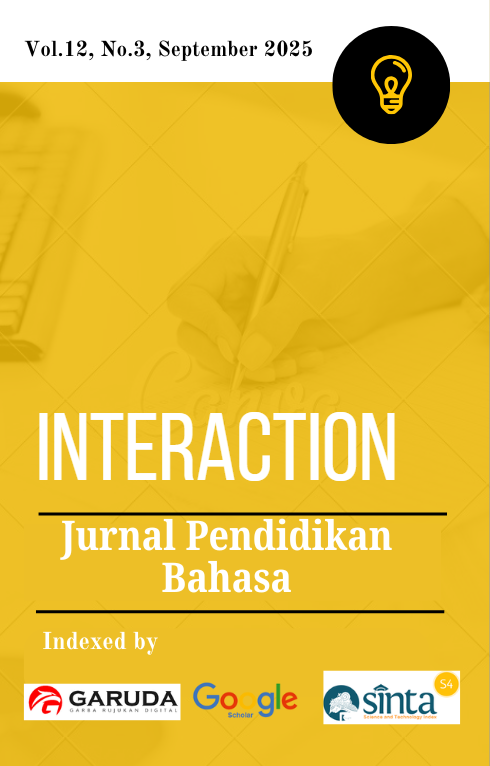Validation of Artificial Intelligence (AI) In Syntactic Analysis to Improve Students' Linguistic Competence and AI Literacy
DOI:
https://doi.org/10.36232/interactionjournal.v12i3.3983Keywords:
Artificial Intelligence, Syntax Analysis, ValidationAbstract
The advancement of artificial intelligence (AI) presents both opportunities and challenges in language learning, particularly in Indonesian syntax analysis, which is characterized by its flexible and complex structures. The main problem arises from AI limitations in accurately distinguishing syntactic functions, especially between objects, complements, and adverbials, which may lead to misinterpretations among students. This study aims to validate AI’s accuracy in sentence pattern analysis and to emphasize its role as a supporting tool rather than a primary authority in syntactic studies. Employing a qualitative descriptive approach with documentation techniques, the research analyzed 60 student-produced sentences processed by AI and compared them with conceptual analysis based on Chaer’s syntactic theory. Findings reveal that AI demonstrates relatively high accuracy in identifying subjects and predicates (90%), moderate accuracy in objects (80%), but lower accuracy in complements and adverbials (75%). These results highlight that while AI is useful for recognizing basic syntactic patterns, it remains weak in distinguishing between obligatory and optional grammatical functions. The implication is that AI integration in language learning must be accompanied by theoretical validation from students and lecturers to ensure that sentence analysis is not merely mechanical but grounded in comprehensive linguistic understanding.








